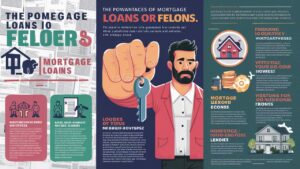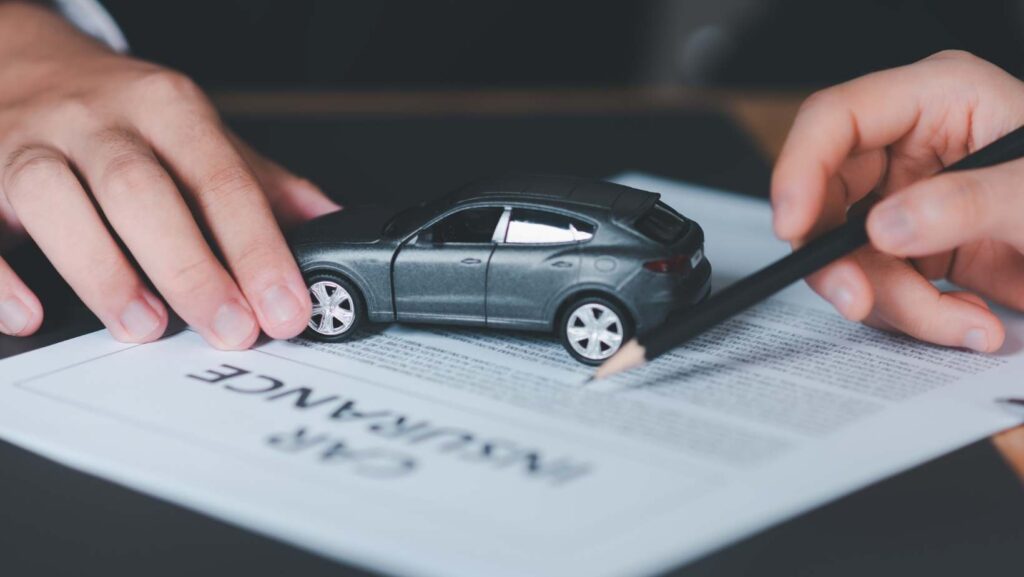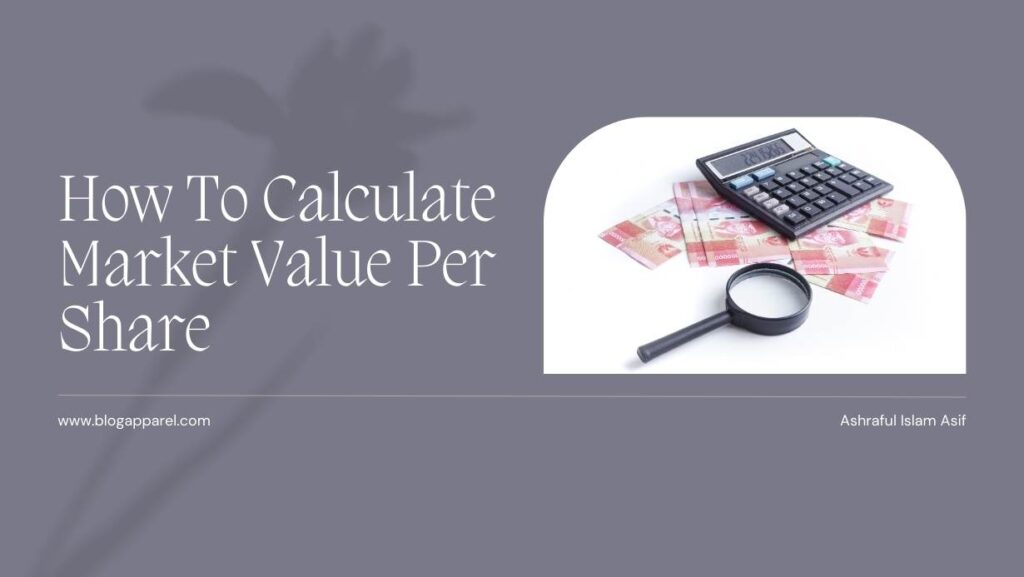Yes, a felon can get a mortgage loan. Despite their criminal record, they are eligible for a mortgage loan like any other applicant. Still, they might face some additional requirements, such as explaining their offense, having a stable job, and having a good financial history.
A criminal record is often a big hurdle in life, and applying for a mortgage loan is no exception. But it’s important to know that having a felony on record doesn’t entirely disqualify someone from getting a mortgage loan. In fact, there are many options available for felons who need financing to buy a home.
However, since conventional lenders might deny a felon’s loan application because of their record, alternative lenders like FHA, VA, and USDA can offer them loans. Even more, a felon can still take some steps to improve their chances of securing a mortgage, which includes rebuilding credit, building up savings, and demonstrating stable employment.
Types Of Mortgage Loans
A felon can apply for four different types of mortgage loans: conventional, FHA, VA, and USDA. Each type of loan has its qualifications based on credit score, down payment, and income standards.
Conventional Loans: Conventional loans require a minimum credit score of 620 and a down payment of 5% or more. For felons, they must wait three years after the completion of their sentence to apply for a conventional mortgage.
FHA Loans: The Federal Housing Administration guarantees these loans. It requires a credit score of 580 or higher, with a down payment of 3.5%. Unlike conventional loans, felons can qualify after one year of completing their sentence.
VA Loans: VA loans are available to military veterans. They require no money down and offer competitive interest rates. Felons with a VA eligibility certificate can apply for a mortgage right after completing their sentence.
USDA Loans: USDA loans are backed by the U.S. Department of Agriculture. Felons can apply for a USDA loan if they have completed their sentence for at least three to seven years or longer, depending on the severity of their offense.
Factors Lenders Consider For Mortgage Loan Approval
When reviewing mortgage loan applications, lenders consider several factors to determine the borrower’s eligibility for approval.
One crucial consideration lenders take into account is the type of felony. Some felonies, like drug trafficking or fraud, can make it challenging to get a loan approval. However, some felonies are less severe and may not significantly impact the lender’s decision.
Another consideration is the amount of time that has passed since the completion of the sentence. Generally, the longer the period between the criminal conviction and the loan application, the better the chances of getting approval.
The presence of mitigating circumstances can also play a role. For example, suppose the person has shown efforts to rebuild their life by maintaining employment, paying restitution, undergoing rehabilitation, or engaging in community service. In that case, lenders may be more lenient in their decision.
How To Prepare For Applying For A Mortgage Loan As A Felon
Preparing for a mortgage loan as a felon may seem daunting, but it is possible. Start by cleaning up your credit, saving for a downpayment, and finding a lender experienced in working with individuals who have a criminal record. With determination and the right steps, you can achieve homeownership.
How To Apply For A Mortgage Loan As A Felon
Applying for a mortgage loan as a felon can be challenging, but it’s not impossible. Below are some tips to help you prepare:
Check Your Credit Score
Your credit score is an important factor in determining whether you qualify for a loan. As a felon, you may have limited access to credit, which could negatively impact your score. Check your score and address any issues that may be lowering it.
Increase Your Down Payment
If you have a criminal record, lenders may require a larger down payment. Consider saving up a larger down payment to offset any concerns lenders may have.
Show Proof of Income and Employment Stability
Lenders want to see that you have a stable income and employment history. Be prepared to provide documentation of this stability, such as pay stubs and tax returns.
Provide Character References
Having character references can help lenders show you are a reliable borrower. Consider asking people who can vouch for your character and financial responsibility, such as former employers or landlords.
Alternative Options For Felons To Obtain A Mortgage Loan
Felons face many challenges, including securing a mortgage loan. However, there are alternative options available. One option is having a co-signer. A co-signer with a good credit score can help the individual get approved for the loan. Another option is seeking private lenders who are more flexible with credit requirements. These lenders may have higher interest rates, so it is essential to evaluate the pros and cons. Credit unions are also viable options for felons. Credit unions consider the applicant’s whole financial picture and may be more willing to work with those with a criminal record.
Disadvantages Of Mortgage Loans For Felons
Felons face significant challenges when trying to get a mortgage loan. One disadvantage is that they are likely to encounter higher interest rates compared to non-felons. This is because lenders view felons as high-risk borrowers. Additionally, felons have limited mortgage loan options available to them, making it harder for them to find a lender willing to work with them.
Moreover, felons are subjected to stricter requirements when applying for a mortgage loan. The lender may require them to provide more documentation and have higher credit scores to be eligible for the loan. All these hurdles can make it challenging for felons to get a mortgage loan.
| Disadvantages of Mortgage Loans for Felons |
| Higher Interest Rates |
| Limited Mortgage Loan Options |
| Stricter Requirements |
Advantages Of Mortgage Loans For Felons

Felons can qualify for mortgage loans that provide a second chance at homeownership. The advantages of these loans include better interest rates, flexible down payment options, and the possibility of a smaller loan.
| Advantages of Mortgage Loans for Felons |
| Felons may face challenges while trying to get a mortgage loan due to their criminal history. However, getting a mortgage loan is still a possibility. Here are some advantages of mortgage loans for felons: |
| Building Equity |
| Mortgage loans allow felons to build equity in their home. Instead of paying rent that goes to their landlord’s pocket, mortgage payments go towards building equity and ownership in their residence. |
| Stable Housing |
| Having stable housing is crucial for felons trying to rebuild their lives. Owning a home provides an opportunity for felons to establish roots within a community and feel a sense of belonging. It also provides them with the stability needed to pursue education, training, and job opportunities. |
| Opportunity for Financial Stability |
| Mortgage loans can provide an opportunity for felons to achieve financial stability. By owning a home and building equity, felons can increase their net worth. This can lead to other financial opportunities such as taking out a loan for a business or investing in their future. |
Pros And Cons Of Renting Vs. Owning For Felons
For felons, finding a place to live can be challenging, and deciding between renting and owning a home can be difficult. Here are some pros and cons to consider:
Renting
- Pros:
- A convicted felon may find it easier to find a rental property than to get approved for a mortgage loan.
- Lease terms are typically shorter, allowing for more flexibility in case of an unexpected move.
- The responsibility for repairs and maintenance typically falls on the landlord.
- Cons:
- Rental properties can come with restrictions, such as no pets or limited modifications allowed.
- The cost of rent can be higher than the cost of a mortgage payment.
- The landlord can terminate a lease with proper notice, leaving the renter to find a new place to live.
Owning
- Pros:
- Homeownership provides a sense of stability and pride in ownership.
- Homeowners can build equity over time, potentially leading to a financial asset that can be sold or borrowed against.
- Modifications can be made to the property without the permission of a landlord.
- Cons:
- Homeownership requires a substantial financial commitment, including a down payment, closing costs, and ongoing maintenance expenses.
- Owning a home comes with added responsibilities, such as maintaining the property and paying property taxes.
- If the homeowner defaults on their mortgage, they risk losing their home through foreclosure.
Faqs About Felons And Mortgage Loans
Mortgage loans are available to felons, but certain requirements must be met. The waiting period for a felon to get a mortgage loan varies depending on the type of loan and the severity of the crime committed. Generally, a felony conviction will make it more difficult to obtain a mortgage loan, but there are options for those who have served their time and demonstrated good behavior.
USDA loans have strict eligibility requirements, but felons may still qualify if they can prove they have rehabilitated and show good credit and payment history. For FHA loans, felons must also demonstrate good credit and payment history and meet additional eligibility requirements.
Felons may also be able to refinance their mortgage loans, but it will depend on their payment history and credit score. Felons need to work with a reputable mortgage lender who can guide them through the process and help them find the best options for their situation.
| Requirements | USDA Loan | FHA Loan |
| Felon Eligibility | Can qualify if rehabbed and good credit | Must demonstrate good credit, payment history, and meet eligibility requirements |
| Mortgage Refinance | Depends on payment history and credit score | Depends on payment history and credit score |
Frequently Asked Questions
Does Being A Felon Affect Your Credit?
Being a felon does not directly affect your credit score. However, a criminal record may affect your ability to get a job, and a steady income is necessary to build credit. Also, having a criminal record could result in higher interest rates on loans, leading to potential credit problems.
What Can Felons Not Do In Texas?
Felons in Texas are restricted from possessing firearms, voting, serving on a jury, holding public office, and obtaining certain professional licenses. Additionally, they may face limitations on certain types of employment and housing.
Can A Convicted Felon Own Property In Texas?
Yes, a convicted felon can own property in Texas, as property ownership is a civil right and is not affected by a criminal record. However, certain types of criminal convictions can result in restrictions on where a felon can live or work.
It’s best to consult with a lawyer for specific legal guidance.
What Is The Help For Felons In Texas?
Texas offers assistance to felons through various programs, such as educational and vocational training, job placement services, and housing programs. Additionally, legal aid services are available to ex-offenders, and resources are available to help facilitate the reintegration of former inmates back into society.
Can A Felon Qualify For A Mortgage Loan?
Yes, a felon can qualify for a mortgage loan. However, it depends on their credit score, income, and the lender’s policies.
Conclusion
Felons may face challenges when applying for a mortgage loan, but they can obtain one. Each lender has its own set of guidelines, and alternative options are available as well. It’s important for felons to rebuild their credit and establish a stable income before considering a mortgage loan.
With perseverance and patience, they can achieve their dream of owning a home.













